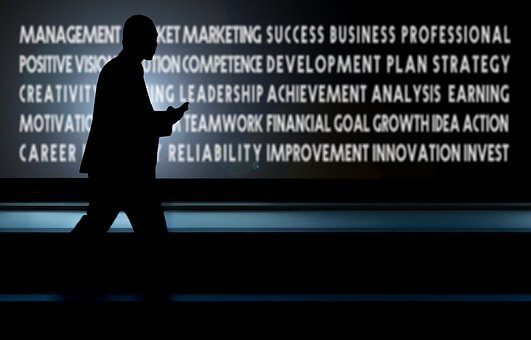How to Tailor Your Cover Letter to a Government Job

Carol Duke is very keen on teaching students new, effective ways of learning. When not freelancing and blogging on education-related matters, Carol enjoys traveling, taking immense pleasure from visiting new countries.
Applying for a government position is a lot different from applying for a private-sector job. Unlike the latter, government or public-sector applications often require a cover letter or personal statement.
Landing a job in a government agency takes a special approach and the cover letter is the hiring manager’s first glimpse at your skills and qualifications. At the same time, it serves as an introduction to your personality and interests.
But for many job-seekers, writing a cover letter can be tricky. Writing one for a government job can be even more frustrating due to some specific criteria that must be included. The following guide describes what you need to know to craft a winning cover letter tailored specifically to government positions.
Getting Started
Make sure to give yourself ample time to prepare your job application. Avoid doing it at the last minute, and take the following steps:
Thoroughly research the agency you’re applying for. Your cover letter gives a window of opportunity to showcase your mindset and skills that match with that of the agency. Grab the recruiter’s attention by showing them you’ve done your homework and that you are familiar with their mission and current programs.


Even the smallest mistakes can be damaging to your credibility as a professional.
CAROL DUKE
Read and understand the entire job posting before applying. It’s a given, but each job posting is different, which means different sets of skills are required for the job. Print out a copy of the post and make a checklist to highlight at least 3 skills required for the position. This way, it will be easier to go back to your cover letter to address these points.
Go into detail. Make sure to explain specific experiences you’ve had that make you the best candidate for the job. Don’t just say, “I did A, B, and C.” For government jobs, it’s best to use numbers, statistics, and specifics.
Things to Include in Your Cover Letter
Header
The first thing to include in your cover letter is, of course, your contact information. The header must come with your full name, contact number, address, and email address. Place this information at the center, on top of the page.
Introduction
Your cover letter should properly address the hiring manager, employer, or recruiter. It’s important to address the cover letter using a recruiter’s name and the appropriate title (that is, if it’s possible to get a specific name).
Then, write a short introduction stating the desired government job and why you’d be good for said position. Don’t forget to include one or two previous job experiences that would be relevant to the agency and position.
Writing the introductory paragraph:
Avoid personal statements of beliefs or judgment without including concrete proof or strong examples that back up such claims.
WRONG
“With my leadership and supervision, I caused an increase in staff productivity.”
Instead, write it in a way that highlights something that can be proven with figures and numbers.
RIGHT
“In my role as a manager, I created an employee incentive program that resulted in a 30% increase in staff productivity.”
Career Experience
After the introduction, present a brief overview of your experience as a professional. Here, you must include past relevant job experiences. Use appropriate wording for qualifications, experiences, and skills listed in the job posting.
Conclusion
Last but not least, your cover letter should end with a strong conclusion. Write down a brief yet concise description of why your skills and qualifications are a perfect match for the government job.
It’s just as important to sell yourself in the conclusion. Make sure to write down what you can bring to the position and the agency as a whole.
Refine and Polish Up
A cover letter should always be free of typos, grammatical errors, spelling mistakes, and ambiguous statements. Make sure to proofread it thoroughly. Ensure that the date, names, and addresses are correct.
Even the smallest mistakes can be damaging to your credibility as a professional. Read your cover letter aloud to identify sentences or phrases that may seem awkward or unnecessary. Ask a friend to read it, or get a professional writer to help polish up your cover letter. Check out writing companies reviews for expert writing advice and assistance.
Conclusion
A cover letter is a perfect opportunity to make a good and lasting first impression with the recruiter. In fact, it can also determine whether or not the recruiter will even read your resume.
Sure, crafting a cover letter could be a long and tedious process, but it’s important to allot plenty of time and effort to ensure that your cover letter keeps a potential employer reading.

CAREER ADVICE

GOV TALK




